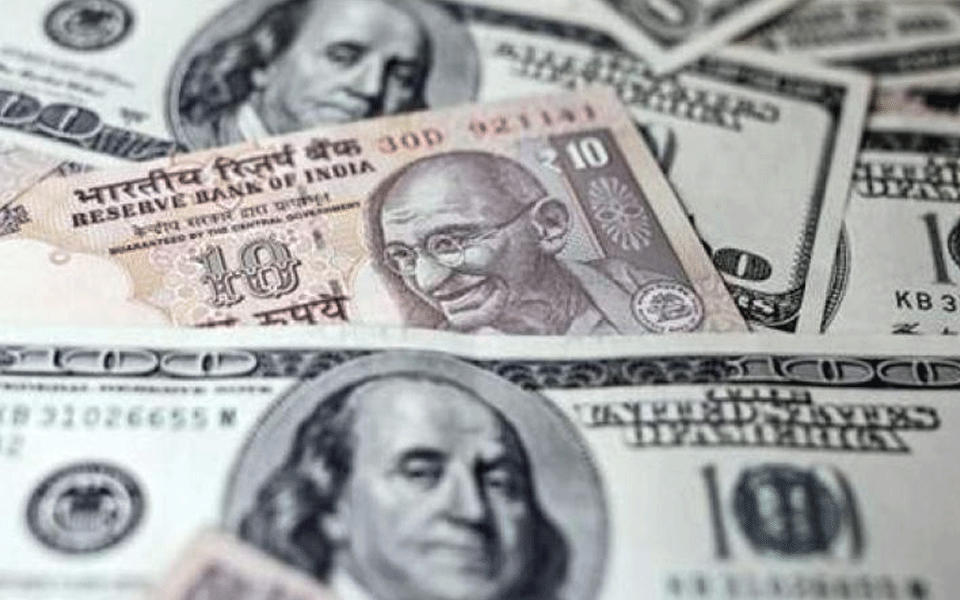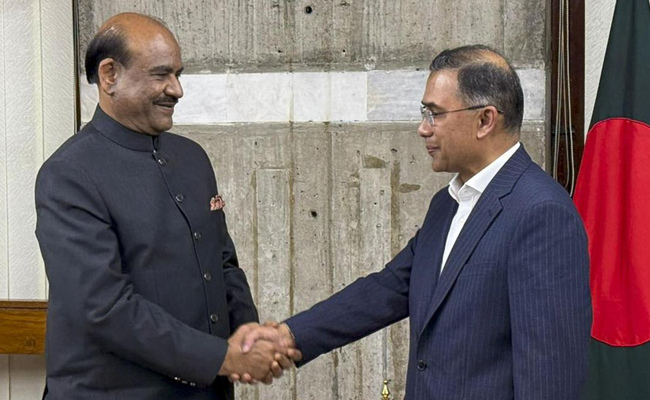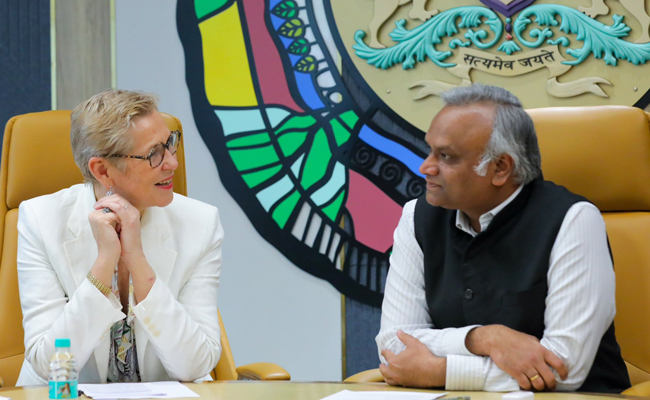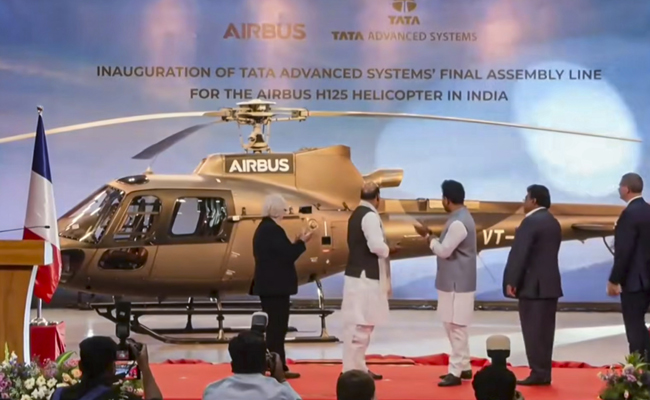Washington: Amidst the global economic recession due to the coronavirus pandemic, foreign investors have pulled out an estimated USD 26 billion from developing Asian economies and over USD 16 billion out of India, according to a Congressional report.
Foreign investors have pulled an estimated USD 26 billion out of developing Asian economies and more than USD16 billion out of India, increasing concerns of a major economic recession in Asia, independent Congressional Research Center said in its latest report on global economic effects of COVID-19.
In Europe, over 30 million people in Germany, France, the UK, Spain, and Italy have applied for state support, while first quarter 2020 data indicates that the eurozone economy contracted by 3.8 per cent, the largest quarterly decline since the series started in 1995, it said.
In the US, preliminary data indicated that the GDP fell by 4.8 per cent in the first quarter of 2020, the largest quarterly decline since the fourth quarter of 2008 during the global financial crisis, the CRS said.
According to CRS, the pandemic crisis is challenging governments to implement monetary and fiscal policies that support credit markets and sustain economic activity, while they are implementing policies to develop vaccines and safeguard their citizens.
In doing so, however, differences in policy approaches are straining relations between countries that promote nationalism and those that argue for a coordinated international response.
Differences in policies are also straining relations between developed and developing economies and between northern and southern members of the eurozone, challenging alliances, and raising questions about the future of global leadership, the report said.
While almost all major economies are shrinking as a result of coronavirus, only three countries China, India, and Indonesia are projected to experience small, but positive rates of economic growth in 2020, it said.
The IMF in its recent report argued that recovery of the global economy could be weaker than projected as a result of lingering uncertainty about possible contagion, lack of confidence, and permanent closure of businesses and shifts in the behaviour of firms and household, the CRS said.
It said public concerns over the spread of the virus have led to self-quarantines, reductions in airline and cruise liner travel, the closing of such institutions as the Louvre, and the rescheduling of theatrical releases of movies, including the sequel in the iconic James Bond series (titled, No Time to Die ).
School closures are affecting 1.5 billion children worldwide, challenging parental leave policies. Other countries are limiting the size of public gatherings.
The drop in business and tourist travel is causing a sharp drop in scheduled airline flights by as much as 10 per cent; airlines are estimating they could lose USD 113 billion in 2020 (an estimate that could prove optimistic given the Trump Administration's announced restrictions on flights from Europe to the United States and the growing list of countries that are similarly restricting flights).
Airports in Europe estimate they could lose USD 4.3 billion in revenue due to fewer flights, it said.
Industry experts estimate that many airlines will be in bankruptcy by May 2020 under current conditions as a result of travel restrictions imposed by a growing number of countries.
The loss of Chinese tourists is another economic blow to countries in Asia and elsewhere that have benefitted from the growing market for Chinese tourists and the stimulus such tourism has provided, it said.
The CRS said the decline in industrial activity has reduced demand for energy products such as crude oil, causing prices to drop sharply, which negatively affects energy producers and electric vehicle manufacturers, but generally is positive for consumers and businesses.
Further, disruptions to industrial activity in China reportedly are causing delays in shipments of computers, cell phones, toys, and medical equipment.
The factory output in China, the United States, Japan, and South Korea all declined in the first months of 2020.
Reduced Chinese agricultural exports, including to Japan, are leading to shortages in some commodities. In addition, numerous auto producers are facing shortages in parts and other supplies that have been sourced in China, CRS said.
Let the Truth be known. If you read VB and like VB, please be a VB Supporter and Help us deliver the Truth to one and all.
New Delhi (PTI): Lok Sabha Speaker Om Birla on Tuesday attended the swearing-in ceremony of new Bangladesh Prime Minister Tarique Rahman in Dhaka, and said India stands ready to support Bangladesh's endeavours to build a democratic, progressive and inclusive nation.
Separately, the speaker called on the new Bangladesh prime minister and conveyed the wishes of Prime Minister Narendra Modi.
He also handed over an invitation from Prime Minister Modi to Rahman to visit India, officials said here.
“Glad to attend the swearing-in ceremony of the new government of Bangladesh led by Prime Minister Tarique Rahman in Dhaka today. India stands ready to support Bangladesh’s endeavours to build a democratic, progressive and inclusive nation,” Birla posted on X.
Bangladesh High Commissioner to India, Riaz Hamidullah, said in a post on X, “Prime Minister Tarique Rahman conveys his greetings to India and PM Narendra Modi to the visiting India Lok Sabha Speaker Om Birla at a courtesy meet following the swearing-in of the new government.
“Speaker Birla conveyed wishes and an invitation to India. Both leaders expressed optimism to work together for the well-being of the people of Bangladesh and India, pursuing a people-centric menu of cooperation.”
Birla also met Maldives President Mohamed Muizzu, Bhutan Prime Minister Tshering Tobgay and other leaders on the sidelines of the event.
Led by Rahman, the Bangladesh Nationalist Party (BNP) swept to power with a two-thirds majority with 49.97 per cent votes and 209 seats in the polls held on February 12, results for which were declared on February 13.
The Jamaat-e-Islami, which was opposed to Bangladesh's independence from Pakistan in 1971, registered its best-ever performance with 31.76 per cent votes and 68 seats.
The National Citizen Party (NCP) secured the third-highest number of seats, six, and 3.05 per cent votes.
Bangladesh had invited Narendra Modi to the ceremony, but the prime minister could not attend the event as he was scheduled to hold talks with French President Emmanuel Macron in Mumbai on Tuesday.
On reaching Dhaka, Birla said the swearing-in of Rahman was an important moment that would strengthen people-to-people relations and shared democratic values between the two neighbours.
“Honoured to be in Dhaka representing India at the swearing-in ceremony of the new government led by Tarique Rahman as the prime minister. It's an important moment that will strengthen people-to-people ties and shared democratic values between our two nations,” Birla said.
Birla was accompanied by Foreign Secretary Vikram Misri and other officials.





